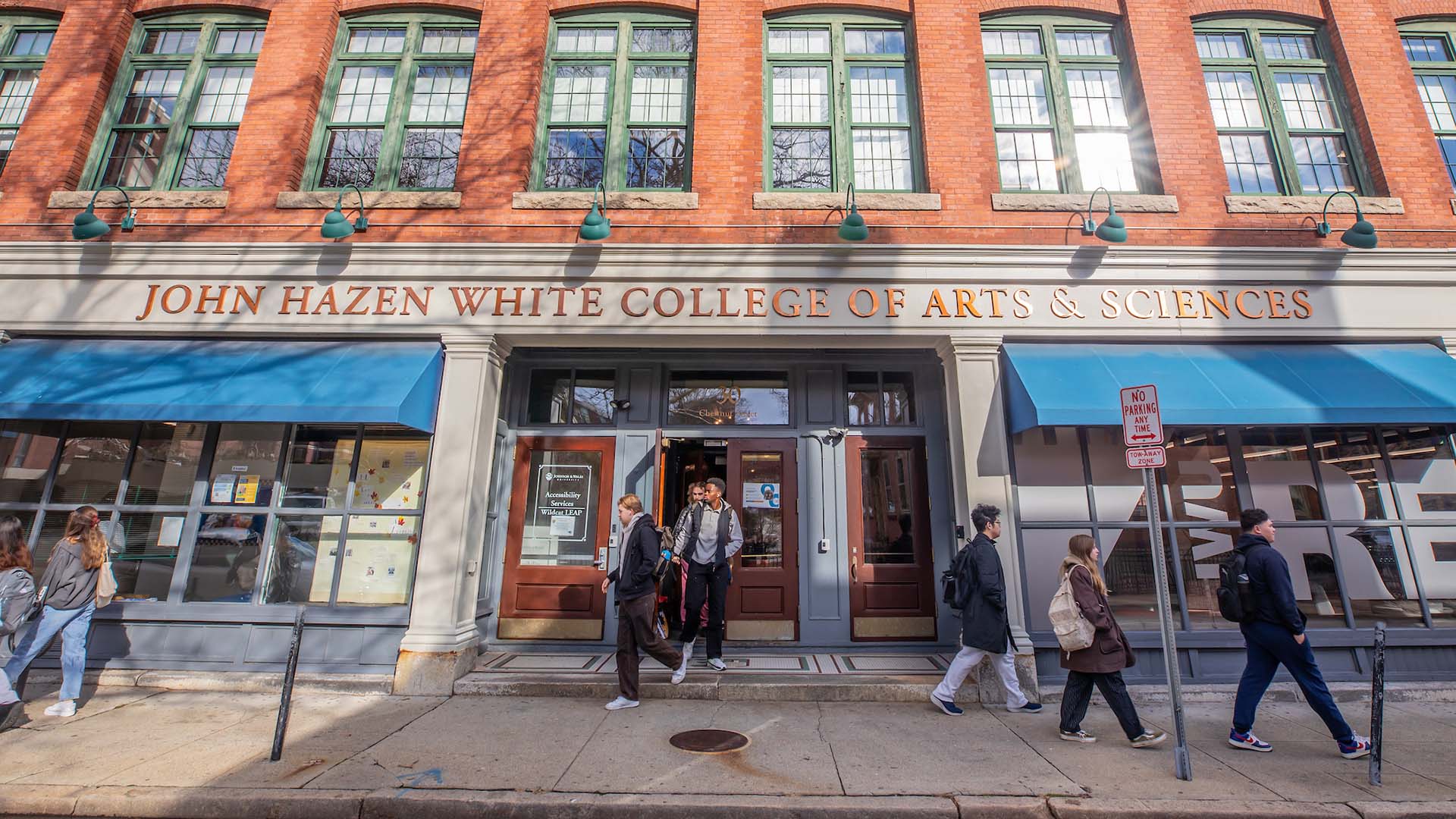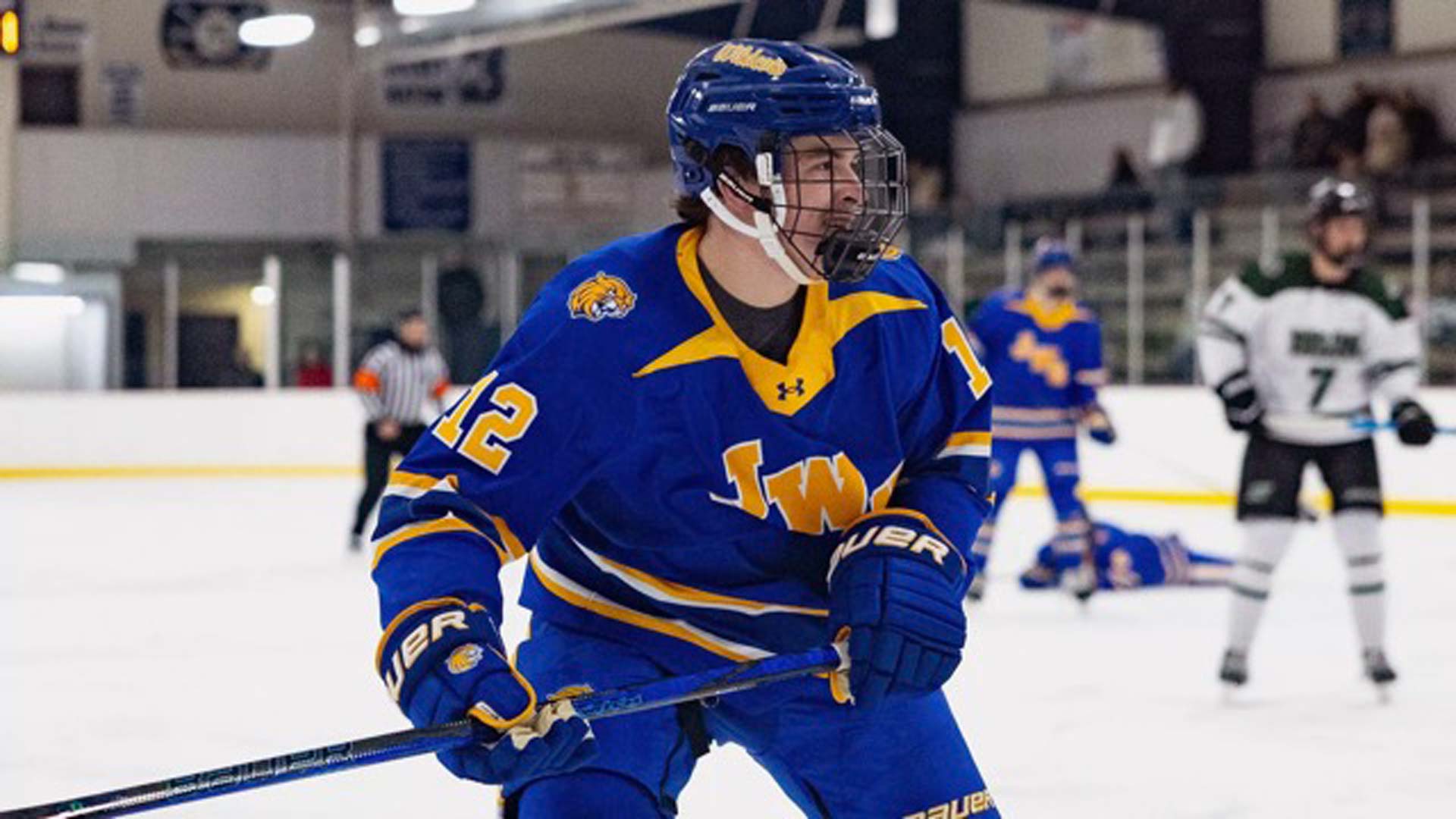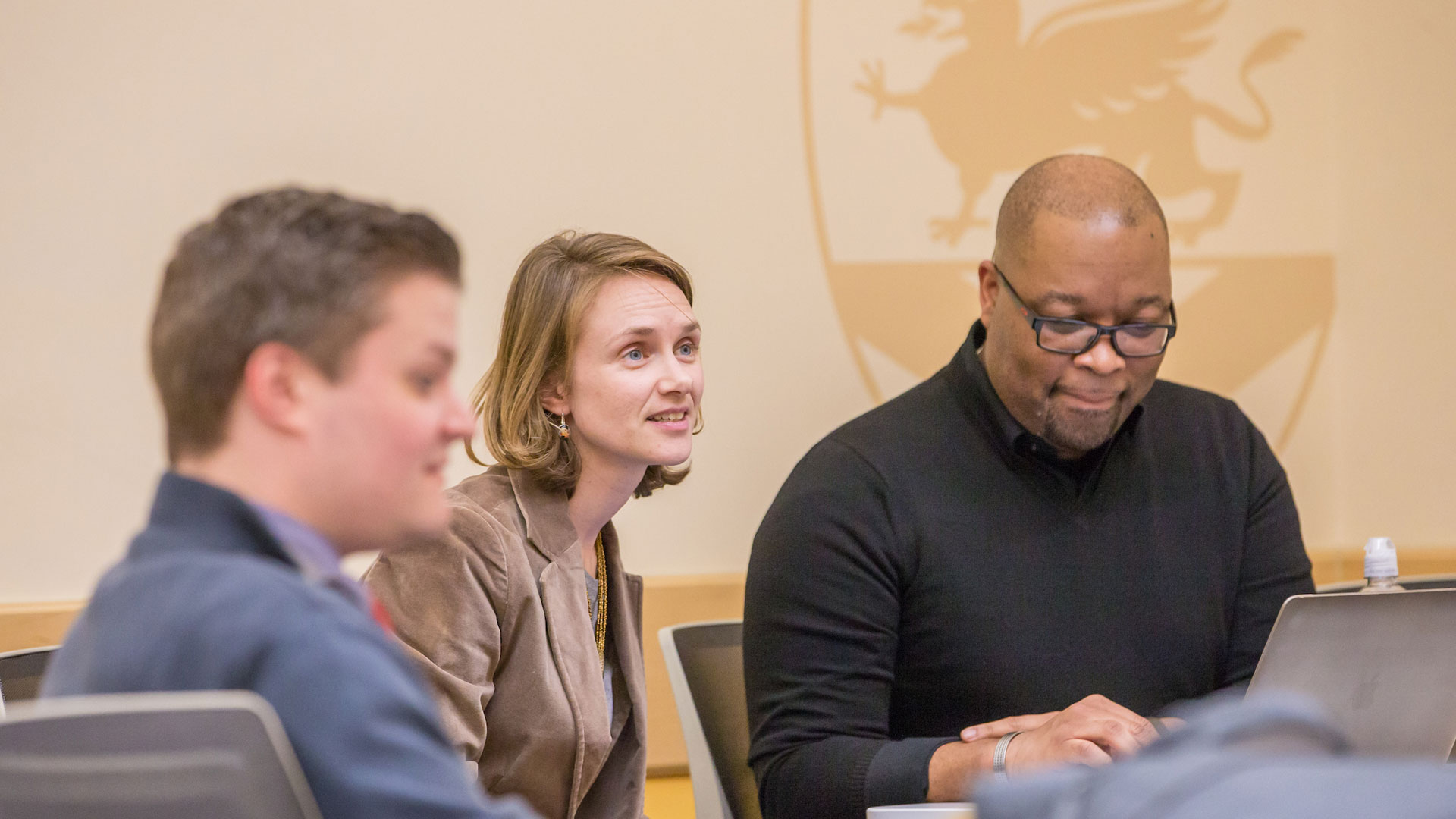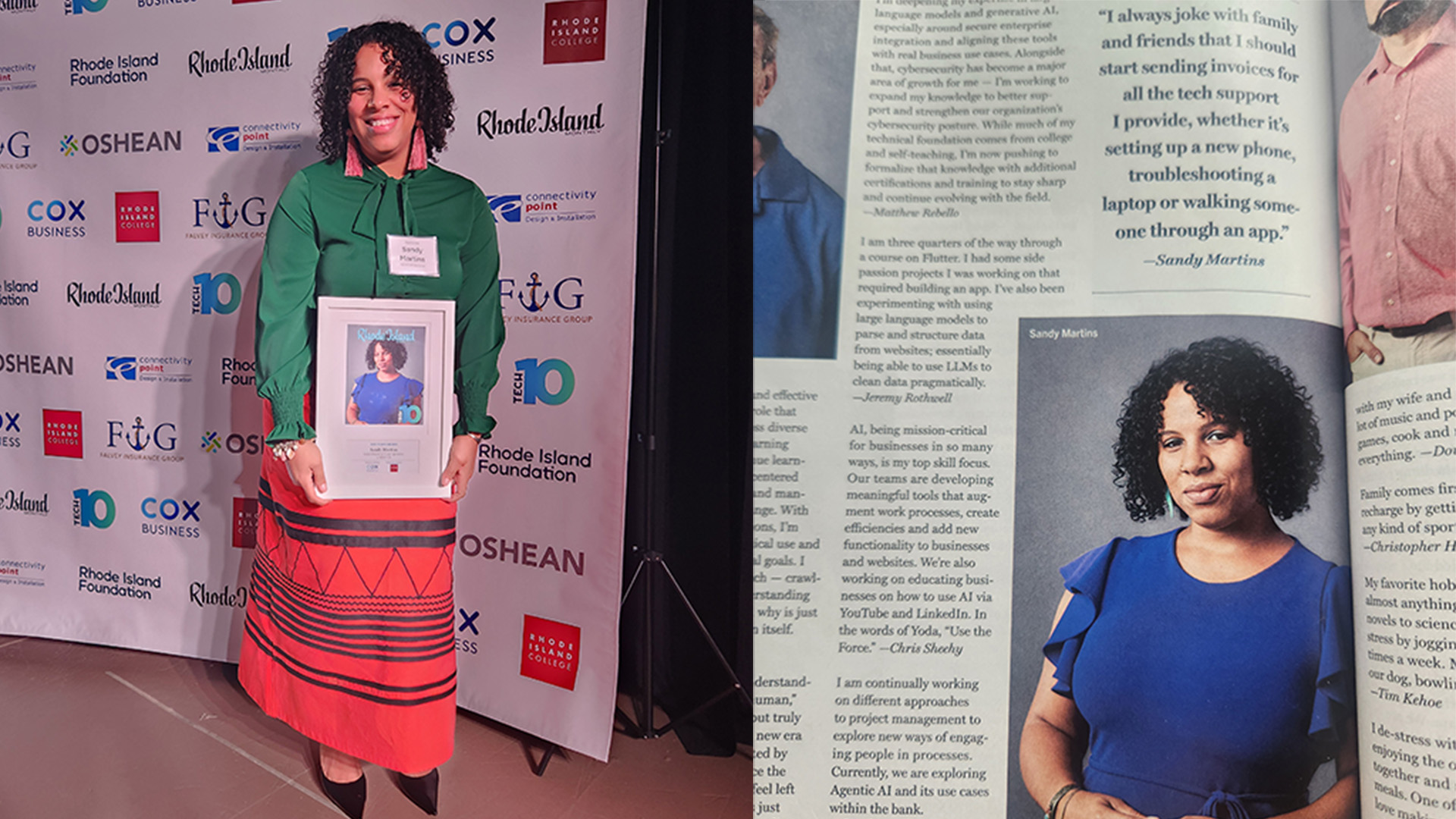12th Annual Academic Symposium Celebrates Student Research
2020 has seen its share of worldwide hardships — from COVID-19 to food insecurity. JWU students are doing their part to help overcome these obstacles, channeling their focus into positive, productive research for JWU’s 12th Annual Academic Symposium.
The event honors outstanding undergraduate work created in the John Hazen White College of Arts & Sciences. JWU Providence professors Scott Oberacker and Johanna Church, symposium co-chairs, selected top projects from students across all majors within the university. Historically, the symposium has been in-person, but for last spring and this spring, COVID-19 has redirected the effort to acknowledge these achievements.
Below are highlights from the five winning submissions:
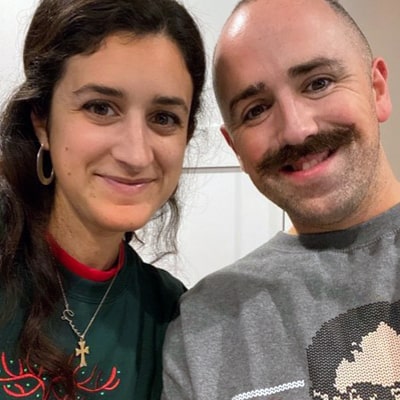 Zachary Bilodeau '21, Criminal Justice
Zachary Bilodeau '21, Criminal Justice
“American War Photography”
American War Photography is a visual essay that examines war photography — from the soldier’s point of view. Starting with WWII and ending in the Middle East, this visual essay is told by a soldier who narrates in a somber, hushed tone as he explores the pain and horrors of war as well as the paradigm shifts in war photography over the decades. In doing so, he prompts the viewer to look — really look — at what the soldier is seeing with his or her own eyes and to not turn away from the truth of the trenches.
“I became interested in this topic after attending Professor Gagnon’s class on visual literacy. She helps you look at the world through a different lens, to think critically, analyze what you are seeing, and put those visuals into words. During my 15 years serving in the military, I experienced quite a bit. Through this class I was able to process what I’ve learned and tell my story.”
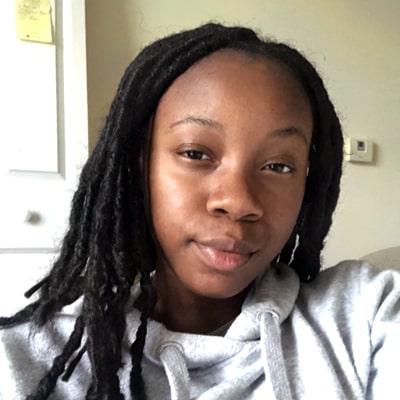 Sanjanae Miley '20, Business Administration
Sanjanae Miley '20, Business Administration
“The Rise of the Social Media Influencer”
To better understand how people become influencers, I conducted a case study looking into the lives of four popular YouTube creators. It seems that many of the biggest creators on the platform had no media presence beforehand and essentially built their fanbase from the ground up. This study also showcases their growth as they branch into other projects outside of social media. The focus of this thesis is to explain how creators on YouTube have become influencers and how this has become a financially successful career path.
“My interest for this topic came from being part of a generation that is so heavily involved and engaged in the world of social media. When social media was first introduced to me it was seen as something fun and a hobby to create posts to share with friends. I later discovered that some people on these platforms were being paid to post regular content and that doing so was their job. The way some influencers are able to impact the image of a brand led to my interest in wanting to work in social media or influencer management. Understanding the history behind it all resonates with me because it is something that I am passionate about and hope to someday make my job.”
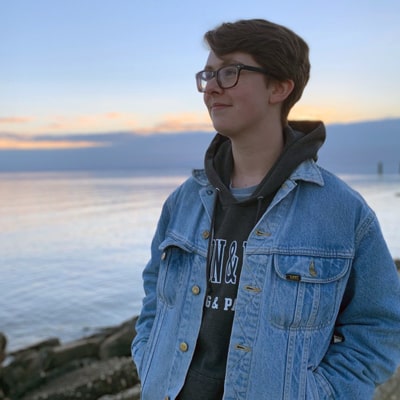 Julia Rao '20, Baking & Pastry Arts, Food & Beverage Entrepreneurship
Julia Rao '20, Baking & Pastry Arts, Food & Beverage Entrepreneurship
“Food Security Site Project”
Food insecurity exists due to socioeconomic challenges related to stability of access and inability to utilize limited foods available. Harvest Kitchen is a nonprofit organization addressing these barriers by providing at-risk youth with culinary job skills while reinforcing the value of utilizing locally grown produce to create nutritious, tasty dishes. Immersing themself into the organization at the start of the COVID-19 pandemic, the researcher sought to understand the inner workings of the Harvest Kitchen café while developing a food safety and sanitation plan that enabled the café to safely continue its training program while reopening to the public.
“As a baker and as a human being, I care a great amount about the stable availability of nutritious food for all people. Growing up, my parents raised me to be mindful of my privilege regarding food security. My eyes were opened even more when I began to pursue a culinary career and witnessed the abundance of food waste that occurs in many food establishments. The readings that my professor, Christine Stamm, provided gave great insight into the way behavioral theories connect with the pillars of food security, government policies, and nutrition. This project expanded my perspective on how a food establishment can be a positive agent of change with regards to alleviating food insecurity.”
Kimberly Hailey Sacaza '23, Biology
“The Genetic Role of Autism”
Autism Spectrum Disorder (ASD) is a neurodevelopmental disorder, and it causes profound problems with communication and social interaction. The goal of this project is to give the reader a quick understanding of the disorder, from the molecular and genetic perspective, and how it affects the patient.
As the underlying cause of the disorder is complex and multi-factorial, I focused on the three of the most commonly thought genetic links: FOXP2, RELN and GABRB3. Additionally, this work explores the complex epigenetic link — how environmental changes might chemically affect associated genetic expression — of the disorder.
“Autism can be found in individuals all around the world, regardless of race, ethnic background, or culture. Expanding our knowledge on the disorder can bring our community closer and seek help faster if symptoms are present. My Genetics course helped me understand the research I was conducting and create a better representation of my project, presenting what I’ve learned in a way that everyone could understand. Since I plan to become a medical provider and connect with all my patients, being educated on this topic helped me develop knowledge, patience and compassion for the people around us.”
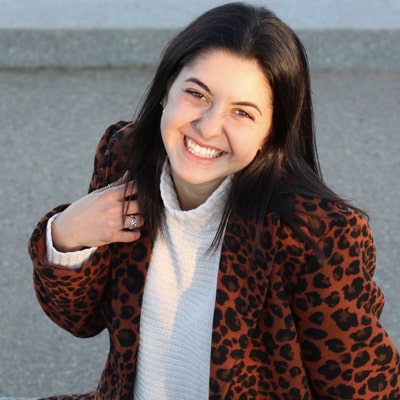 Grace Taber '21, Biology
Grace Taber '21, Biology
“COVID-19 and Hydroxychloroquine: Old Drug, New Purpose”
In the spring of 2020, coronavirus disease 2019 (COVID-19) was declared a global pandemic. Since then, vast bodies of research have worked to understand its causative agent, severe acute respiratory syndrome coronavirus (SARS-CoV-2) and test diagnostic and therapeutic tools that may help in virus management. Hydroxychloroquine, an antimalarial medication, has been prescribed for inflammatory conditions such as rheumatoid arthritis (RA) and systemic lupus erythematosus (SLE). Due to its antiviral properties, it was considered as a treatment for COVID-19 but is no longer. Hydroxychloroquine is investigated in its potential immunological application to combat COVID-19 while also examining its recent politicization.
“As a future healthcare practitioner, I am extremely passionate in treating disease in a holistic and patient-centered way. Medicine is not a one-size-fits-all situation, and I firmly believe that the more treatment options that exist, the better the patient outcome will be. The concept of repurposing an existing pharmaceutical drug that had been used to treat various autoimmune conditions for the current pandemic fascinated me. I am incredibly thankful to Associate Professor Urban, for her encouragement in my pursuing this topic. Putting together polished research that was fueled by both curiosity and passion has been incredible rewarding, and I cannot thank her enough for her support.”
